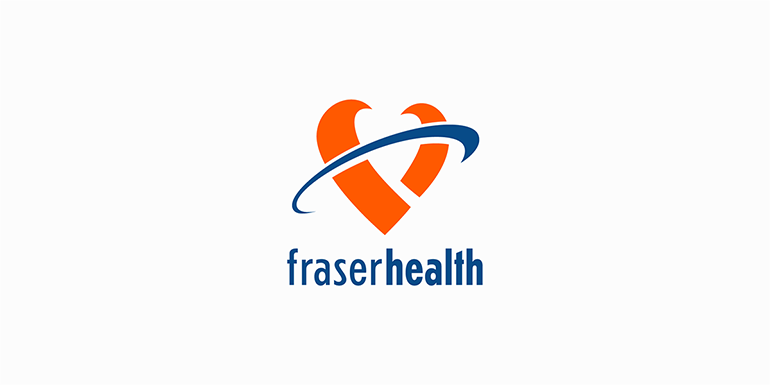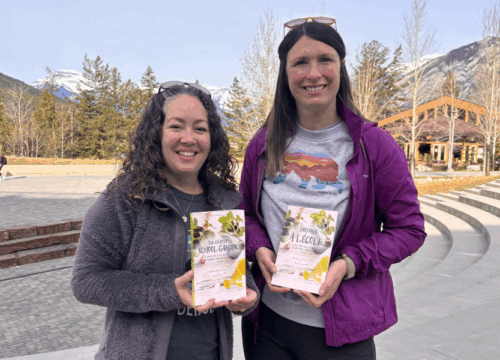Fraser Health: communication concernant la grippe aviaire H5

RICHMOND, 14 novembre 2024 – Le Conseil scolaire francophone de la Colombie-Britannique (CSF) vous invite à consulter la lettre du Fraser Health concernant un cas de grippe aviaire causé par le virus H5
Fraser Health a publié la lettre suivante à l’intention des parents, du personnel et des familles concernant un cas de grippe aviaire causé par le virus H5 dans la région de Fraser Health — une première en Colombie-Britannique et au Canada.
Selon Fraser Health, le cas a été signalé le samedi 9 novembre comme un test probablement positif, avec des tests supplémentaires en cours par le Laboratoire national de microbiologie à Winnipeg pour confirmer le résultat positif.
La lettre jointe précise qu’il s’agit d’un événement rare. À ce jour, aucune exposition connue dans une école n’a été signalée et aucun autre cas n’a été identifié. La Santé publique assure le suivi des contacts qui pourraient avoir été exposés pour évaluer les symptômes et fournir des conseils sur les tests et les mesures de prévention.
Veuillez consulter la lettre ci-dessous pour plus d’informations y compris les mesures préventives recommandées, les ressources pour la vaccination et des informations sur la façon de vous protéger contre la grippe aviaire — et restez attentifs aux mises à jour ultérieures des autorités sanitaires.
November 12, 2024
Dear Superintendent,
Re: H5 Avian Influenza Communication
As the Office of the Provincial Health Officer and the Ministry of Health shared on Saturday, November 9, a teenager from the Fraser Health region has tested presumptively positive for avian influenza caused by the H5 influenza virus. This is the first occurrence of avian influenza due to the H5 virus acquired by a person in B.C. and in Canada. Further testing is taking place to confirm the positive result by the National Microbiology Lab in Winnipeg.
This is a rare event. There have been a small number of human cases in the U.S. and elsewhere. Public Health is following up with contacts who may have been exposed to assess for symptoms and provide guidance on testing and prevention measures. There have been no further cases identified at this time. There is no known exposure at any school. The source of exposure is very likely to be an animal or bird and is being investigated by B.C.’s Chief Veterinarian and Public Health teams. The investigation involves Public Health teams from Fraser Health, BC Centre for Disease Control (BCCDC), the BCCDC Public Health Laboratory, BC Children’s Hospital, the Office of the Provincial Health Officer, Office of the Chief Veterinarian, Ministry of Agriculture and Food, and others.
Preventative measures
We can protect ourselves and our communities against avian influenza.
- Stay up to date on all immunizations, especially the seasonal flu vaccine.
- Petting zoo and farm visits can continue but direct physical contact with all birds (including all poultry, ducks or any other waterfowl) should be avoided at this time.
- Do not touch sick or dead animals or their droppings and do not bring sick wild animals into your home.
- Keep pets away from sick or dead animals and their feces (poo).
- Report dead or sick birds or animals.
- For poultry or livestock, contact the Canadian Food Inspection Agency (CFIA) Animal Health office: Contact a Canadian Food Inspection Agency office by telephone – inspection.canada.ca
- For pets, contact your veterinarian or call the BC Animal Health Centre: 1-800-661-9903
- For wild birds, contact the B.C. Wild Bird Mortality Line: 1-866-431-2473
- For wild mammals, contact the B.C. Wildlife Health Program: 1 (250) 751-7246.
About avian influenza
Avian influenza viruses occur naturally among wild aquatic birds and spread easily from bird to bird. While it mostly affects birds, it can affect other animals too. In B.C., H5N1 has been detected in wild birds, on poultry farms and among small wild mammals, including skunks and foxes. Influenza viruses are adaptable and can change when strains from humans or different animal species mix and exchange genetic information. Avian influenza could become more serious if the virus develops the ability to transmit from person to person, with potential for human-to-human transmission.
If you have been exposed to sick or dead birds or animals where avian influenza has been detected, watch for symptoms of influenza-like illness (see link below for more details). If you get symptoms within 10 days after exposure to sick or dead animals, tell your health care provider that you have been in contact with sick animals and are concerned about avian influenza. This will help them give you appropriate advice on testing and treatment. Stay home and away from others while you have symptoms.
Learn More:
- BCCDC information on avian influenza: Avian Influenza (bccdc.ca)
- Avian influenza: How can I protect myself?: Avian flu: How can I protect myself? (bccdc.ca)
- HealthLinkBC information on avian influenza: Avian Influenza (Bird Flu) | HealthLink BC
Immunizations
Remember, all students should stay up to date with their immunizations:
- All routine school-aged immunizations are free in British Columbia.
- Families can check their immunization records at healthgateway.gov.bc.ca
- If a record is missing immunizations that were received, families can submit the record to Public Health by visiting fraserhealth.ca/ImmunizationForm
- If more immunizations are needed, families can visit fraserhealth.ca/GetImmunized to learn how to book an appointment.
Your continued support in keeping our children and communities healthy is much appreciated.
Thank you,
Ingrid Tyler, MD, CCFP, MHSc, MEd, FRCPC
Vice President, Population Health and Chief Medical Health Officer
Fraser Health Authority
Resources
Ces articles pourraient aussi vous intéresser
Voir toutes les archives
Jardiner à l’école : un ouvrage pour intégrer les perspectives autochtones dans l’enseignement
Dans le cadre du Mois de l’Histoire autochtone, le CSF tient à souligner une initiative […]

Rencontre publique spéciale du CA – le 30 juin 2025 à 17 h 00
La prochaine rencontre publique spéciale du conseil d’administration se tiendra le lundi 30 juin 2025 […]

Les finissant·e·s 2025 à l’honneur dans une vidéo
Le CSF vous invite à consulter la vidéo ci-dessous mettant à l’honneur les 250 finissantes […]